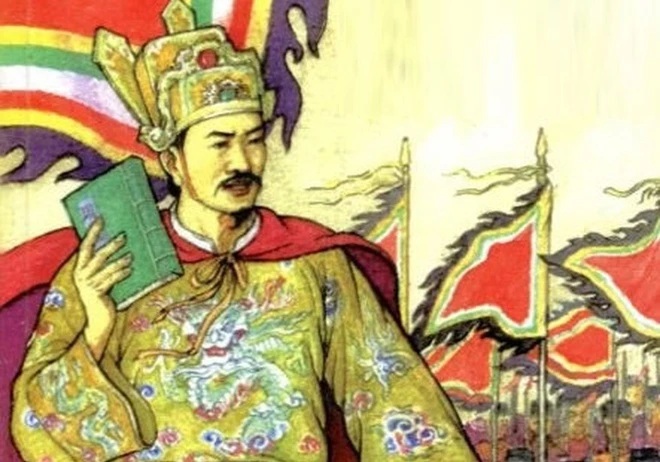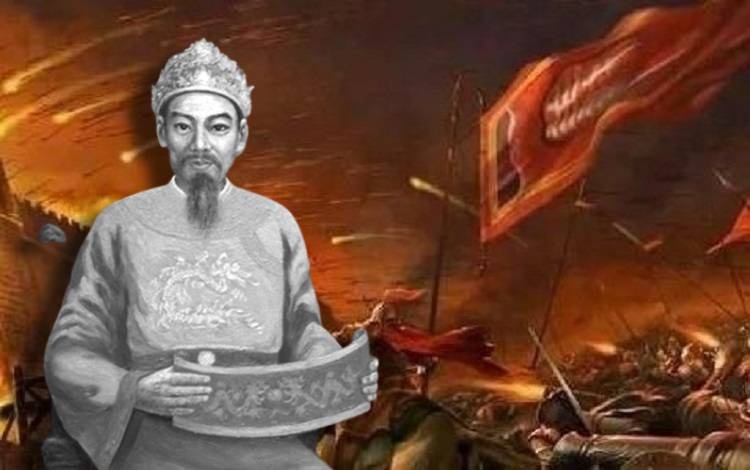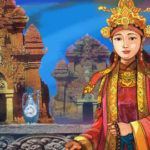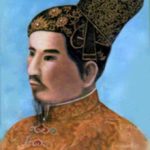The words “Viet Nam” have always been a source of pride for the people of the country, no matter where they are. It was King Gia Long who named our country Viet Nam. In 1802, after ascending the throne, King Gia Long recognized the importance of stabilizing the royal court. Once that was accomplished, the king turned his attention to choosing a name for the country, thereby asserting the unity of a new dynasty.

The following year, King Gia Long intended to ask the Qing Dynasty to name our country Nam Viet.
However, this request was not granted due to potential confusion with the ancient kingdom of Nam Viet founded by Trieu Da. After several rounds of correspondence, the name Viet Nam was finally approved.
In February 1804, King Gia Long issued a decree establishing the new name of our country as Viet Nam. The decree stated: “It is imperative for an emperor to first establish a proper name for his country to demonstrate its unity. Considering our ancestors, the saintly kings who laid the foundation for our nation, and the expansion of our territory, including the lands from Viet Thuong to the South, we shall henceforth adopt the name Viet for our country… Therefore, on the 17th of February of this year, we respectfully announce to the ancestral temple that we have rectified our country’s name to Viet Nam, in order to establish a grand foundation that will endure for generations. Henceforth, in all matters pertaining to our country and in all correspondence with foreign nations, our country shall be known as Viet Nam, and the former name of An Nam shall no longer be used.”
The country’s name, Viet Nam, persisted for 34 years during the reign of the Nguyen Dynasty (1804–1838). It was only when King Minh Mang ascended the throne that the country’s name was changed to Dai Nam. On September 2, 1945, President Ho Chi Minh read the Declaration of Independence, giving birth to the Democratic Republic of Viet Nam, and the country’s name, Viet Nam, began to be widely used with its most profound and comprehensive meaning.
Thus, it was only in 1804 that our country officially adopted the name Viet Nam. However, these two sacred words were mentioned much earlier, some 300 years ago, in a prophecy by Trạng Trình Nguyễn Bỉnh Khiêm: “Viet Nam khởi tổ gầy nên” (Viet Nam, the beginning of a new nation). At the time he spoke these words, our country was still known as Dai Viet.

Moreover, the words “Viet Nam” also appear in a Chinese poem, “Sơn hà hải động thường vịnh” (Ode to the Land and People of Viet Nam)
In a letter to Trạng Nguyên Giáp Hải, Trạng Trình wrote: “Tiền trình vĩ đại quân tu ký/ Thùy thị phương danh trọng Việt Nam” (Remember the grand vision ahead/ Who will be renowned in glorious Viet Nam?) and “Tuệ tinh cộng ngưỡng quang mang tại/ Tiền hậu quang huy chiếu Việt Nam” (Together we look up at the shining star/ Its radiance illuminating Viet Nam, past and future).
However, some documents suggest that Trạng Trình was not the first to mention the term “Viet Nam.” These words were found on inscriptions from the 16th and 17th centuries at Bao Lam Pagoda (Hai Duong), Cam Lo Pagoda (Hanoi), and Phuc Thanh Pagoda (Bac Ninh)… At the Bia Thuy Mon Dinh in Lang Son, on the border, there is the sentence: “Việt Nam hầu thiệt, trấn Bắc ải quan” (Viet Nam, the vital gateway, guarding the northern border). Some sources indicate that as early as 1792, during the reign of King Quang Trung, the country’s name was changed to Viet Nam. It was Phan Huy Ich who drafted the “Proclamation of the New Country’s Name.”
However, the earliest known mention of “Viet Nam” dates back to the 14th century in the “Việt Nam thế chí” by scholar Ho Tong Thoc of the Hanlin Academy. This information was discovered by Master’s degree holder Luong Duc Hien and shared in the newspaper “Giao Duc” in 2018.



































